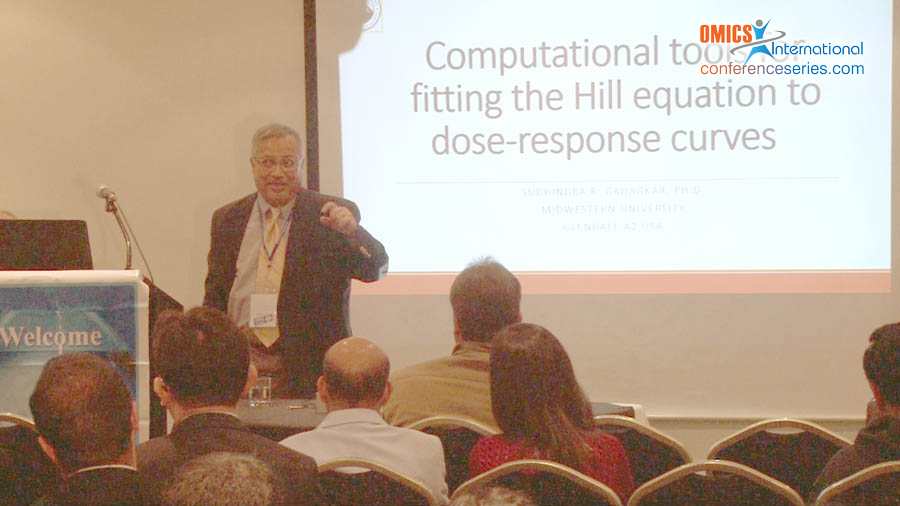
Sudhindra R Gadagkar
Midwestern University,USA
Title: Computational tools for fitting the Hill equation to dose–response curves
Biography
Biography: Sudhindra R Gadagkar
Abstract
Biological response curves commonly assume a sigmoidal shape that can be approximated well by means of the 4-parameter nonlinear logistic equation, also called the Hill equation. However, estimation of the Hill equation parameters typically requires access to commercial software or the ability to write computer code. Here we present two user-friendly and freely available computer programs to fit the Hill equation — a Solver-based Microsoft Excel template and a stand-alone “point and click” program, called HEPB. Both computer programs use the iterative method to estimate the Hill equation parameters, EC50 and the Hill slope, while constraining the values of the minimum and maximum asymptotes of the response variable. While the Excel template allows the user to work in the familiar Microsoft Office environment, HEPB, in addition to fitting the Hill equation, also computes the prediction band for the data at a user-defined level of confidence, and determines the EC50 value for each of the limits of this band to give boundary values that help objectively delineate sensitive, normal and resistant responses to the drug being tested. Furthermore, HEPB also has the option to simulate response values based on the original data and the fit of the Hill equation to that data. Both programs were tested by analyzing twelve datasets that varied widely in data values, sample size and slope, and were found to yield estimates of the Hill equation parameters that were essentially identical to those provided by GraphPad Prism and nls, the statistical package in the programming language R.

